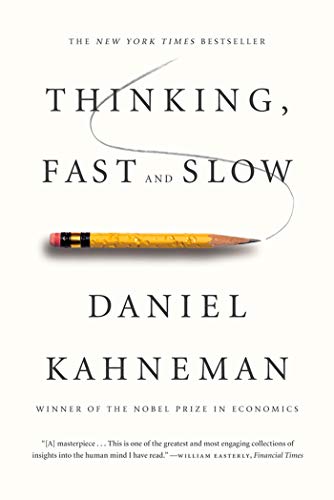Blink: The Power of Thinking Without Thinking by Malcolm Gladwell
“Blink: The Power of Thinking Without Thinking” by Malcolm Gladwell is a fascinating exploration of the human mind’s ability to make split-second decisions. Published in 2005, this non-fiction book delves into the science of rapid cognition, revealing how and why our instincts often outperform our rational thoughts. If you’re curious about the power of intuition and the mechanics behind quick decisions, this book is a compelling read.
Summary
“Blink” is a 320-page non-fiction book that falls under the genres of psychology and self-help. Since its publication in 2005, it has garnered widespread acclaim and continues to be a significant work in understanding human behavior and decision-making.
Plot Overview
Gladwell introduces readers to the concept of “thin-slicing,” the ability of our unconscious mind to find patterns in situations and behaviors based on very narrow slices of experience. Through a series of engaging anecdotes and scientific studies, he demonstrates how our brains can make quick, effective decisions without the need for extensive analysis. From art experts identifying forgeries to firefighters sensing danger before it strikes, “Blink” illustrates the power and potential pitfalls of our snap judgments.
Key Facts and Ratings
“Blink” has been well-received by both readers and critics, holding an average rating of 4.1 stars on major book review platforms. It has been praised for its accessible writing style and thought-provoking content, making it a popular choice for those interested in psychology and self-improvement.
Endorsed by Bill Gates
The book has been endorsed by notable figures, including Bill Gates, who commended Gladwell for his ability to make complex topics understandable and engaging. Such endorsements highlight the book’s impact and relevance.
Malcolm Gladwell is a renowned journalist, author, and speaker known for his ability to weave storytelling with scientific research. He has written several bestsellers, including “The Tipping Point,” “Outliers,” and “David and Goliath.” Gladwell’s work often explores the hidden forces that shape our decisions and behaviors, making him a prominent voice in contemporary non-fiction.
Assessment of the Writing Style
Gladwell’s writing style is conversational and engaging, which makes “Blink” an enjoyable read for a broad audience. He combines compelling narratives with scientific research, creating a book that is both informative and entertaining. Critics have praised his ability to present complex ideas in an accessible manner, although some have noted that his anecdotal approach can sometimes oversimplify nuanced topics.
Blink: Strengths
Engaging Narratives - Gladwell uses real-life stories to illustrate his points, making the book highly engaging.
Accessible Science - Complex psychological concepts are explained in a way that is easy to understand.
Thought-Provoking - Challenges readers to reconsider how they make decisions.
Broad Appeal - Relevant to both personal development and professional contexts.
Balanced Perspective - Discusses both the strengths and weaknesses of rapid cognition.
Key Facts and Takeaways
📅 Published in 2005
📚 Genre: Psychology, Self-help
⭐ Average rating: 4.1 stars
🌍 Translated into multiple languages
🏆 Endorsed by Bill Gates
🔍 Explores the concept of “thin-slicing”
🎯 Thin-slicing is the ability to make quick decisions based on limited information, often within seconds.
🧠 Rapid cognition is inbuilt. Our subconscious mind processes information swiftly, leading to immediate judgments.
⚖️ Accuracy vs. error while snap judgements are highly accurate, they can be susceptible to errors and biases.
🔍 Context matters in improving the accuracy of quick decisions. You have to read the room, or the environment around a decision, to make reliable judgements.
🚫 Bias and prejudice can distort rapid cognition, leading to flawed decisions.
👥 First impressions play a significant role in shaping our interactions and decisions.
⏳ Timing is critical, and the best timing in making decisions may influence their outcome.
💡 Training intuition helps. With practice and awareness, we can hone our intuitive decision-making skills.
🔄 Balance is IMPORTANT. Do not overdo snap judgements. Gladwell advocates for a balance between trusting our instincts and engaging in more deliberate thinking.
What’s Unique About Blink?
What sets “Blink” apart is its focus on the unconscious mind’s role in decision-making. Gladwell’s exploration of “thin-slicing” provides a unique perspective on how we can trust our instincts while being aware of their limitations. The book’s combination of scientific research and storytelling makes it a distinctive and insightful read.
Who Would Enjoy This Book?
“Blink” is ideal for anyone interested in psychology, decision-making, and personal development. Whether you’re a professional looking to improve your decision-making skills or simply curious about the science of intuition, this book offers valuable insights. It’s also a great read for fans of Gladwell’s other works and those who enjoy books that blend science with engaging narratives.
Other Books by Malcolm Gladwell
“The Tipping Point”
“Outliers”
“David and Goliath”
“What the Dog Saw”
“Talking to Strangers”
Reading Plan
To fully appreciate “Blink,” consider reading one chapter at a time and reflecting on the concepts discussed. Take notes on how the ideas apply to your own experiences and decision-making processes.
10 Books Similar to Blink: The Power of Thinking Without Thinking
The Reading List
“Thinking, Fast and Slow” by Daniel Kahneman
“The Power of Habit” by Charles Duhigg
“Predictably Irrational” by Dan Ariely
“Nudge” by Richard H. Thaler and Cass R. Sunstein
“Grit” by Angela Duckworth
“The Art of Thinking Clearly” by Rolf Dobelli
“Switch” by Chip Heath and Dan Heath
“Mindset” by Carol S. Dweck
“Freakonomics” by Steven D. Levitt and Stephen J. Dubner
“Drive” by Daniel H. Pink
Similar Authors
Daniel Kahneman
Charles Duhigg
Dan Ariely
Richard H. Thaler
Steven D. Levitt
Curious about the power of your unconscious mind? Get your copy of “Blink: The Power of Thinking Without Thinking” and explore the fascinating subject of rapid cognition. Happy reading!










